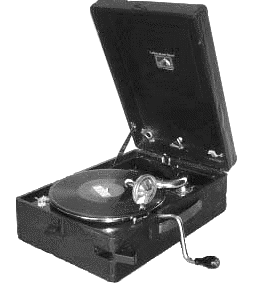- Connecting audio
- Audio PC
- Raspberry & Co
- All in Ones
- Bluetooth
- Chromecast
- Streaming audio player
- Music server
- USB Audio
- Real-time audio over IP
- FireWire DAC
- Multi-channel DAC
- NAS
- Remote control
- Vinyl rippers
- Acoustic materials
- Active crossover
- Active speakers
- Single driver speakers
- Invisible speakers
- Sound card
- Digital room correction
- Headphone
- Portable media players
All in One Systems
Audio using a computer started with a sound card.
Later external DACs become available.
Around 2005 music servers appeared on the market.
Basically PCs camouflaged as HiFi gear.
They do have internal storage.
Around 2000 streamers appear on the market.
Initially for internet radio but later one could access one’s own collection as well.
They don't have internal storage but play from a server.
Around 2015 streaming audio service become popular.
So popular that the sales of downloads dropped.
In the end all these different type of boxes are networked computers.
Why not doing it all with one box?
Cary Audio was the one who dubbed it AiOS, All in One Sytem.
Pretty apt.
It are amps/pre-amps with all the digital inputs.
What does all these specs means?
| Network connectivity | Ethernet | Wired connection |
| WiFi | Wireless connection | |
| Network protocol | UPnP/DLNA | Can play the content of DLNA servers/ can be controlled by an app over the network using the DLNA protocol. |
| Airplay | Apples proprietary DLNA | |
| Chromecast | A proprietary protocol by Google | |
| SMB (file sharing) | FIle sharing, reads audio stored on PCs/ NAS using a share | |
| Network services | Tidal/Spotify | Streaming audio services |
| Bluetooth | SBC | Audio from Bluetooth enabled devices can be send to this box |
| aptX | Proprietary Bluetooth codec |
|
| Storage | Internal | Local hard disc |
| External | External hard disk | |
| Audio inputs | ||
| USB DAC | PCM | The standard format, 44.1 kHz to 384 kHz, 16 bit to 32 bit is a common spec today |
| DOP | DSD over USB: 64, 128, 256 and 512. | |
| Legacy | SPDIF (coax) | 44.1 kHz to 192 kHz, 16bit to 24 bit are common values |
| Toslink | ||
| AES/EBU | Pro standard | |
| File formats | PCM | supported audio file formats |
| DSD |

